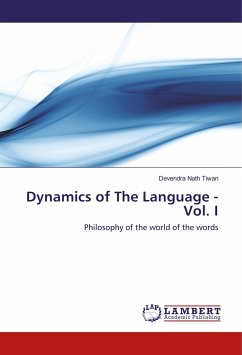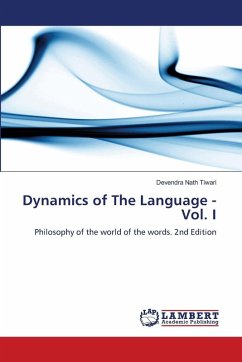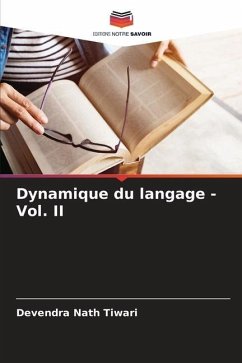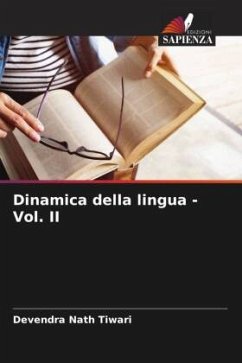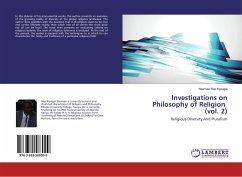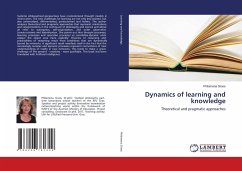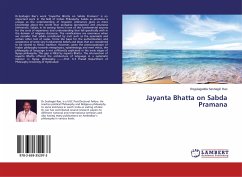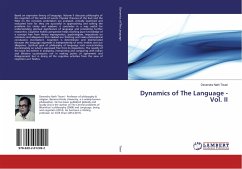
Dynamics of The Language - Vol. II
Versandkostenfrei!
Versandfertig in 6-10 Tagen
29,99 €
inkl. MwSt.

PAYBACK Punkte
15 °P sammeln!
Based on expressive theory of language, Volume II discusses philosophy of the cognition of the world of words. Popular theories of the East and the West on the concepts undertaken are analyzed, critically examined and evaluated how far they are successful in approaching and solving the problems for clarity and wisdom; it concludes in a way useful for understanding spiritual significance of language and promoting further researches. Cognitive holistic perspective helps reaching pure knowledge of a concept free from theory impregnation, psychologism, impositions on emotions and allegiances that ...
Based on expressive theory of language, Volume II discusses philosophy of the cognition of the world of words. Popular theories of the East and the West on the concepts undertaken are analyzed, critically examined and evaluated how far they are successful in approaching and solving the problems for clarity and wisdom; it concludes in a way useful for understanding spiritual significance of language and promoting further researches. Cognitive holistic perspective helps reaching pure knowledge of a concept free from theory impregnation, psychologism, impositions on emotions and allegiances that mislead our thinking and make philosophical conclusions inconsistent. Cognition is determinate and disinterested because the language expresses it independently of ontic entities and our allegiance. Spiritual goal of philosophy of language rests concentrating discriminately on what is expressed free from its impositions. The novelty of the book lies neither in analyzing, interpreting and comparing with Indian and Western counterparts nor in making points of agreement and disagreement but in doing all the cognitive activities from the view of cognition as it flashes.



